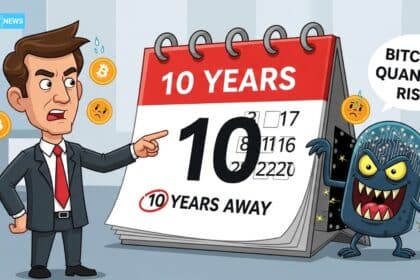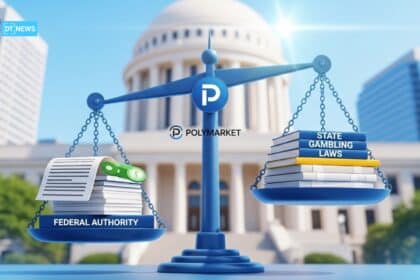SEC Clears Intraday Trading for Tokenized Money Market Fund at $1.00
This article was first published on Deythere. A new SEC order is…
Bitcoin Quantum Risk Still a Decade Away, Says Michael Saylor
The Bitcoin quantum threat has become the subject of heated discussions in…
Trump Tariff Fears Push US Dollar Lower Across Major Currencies
This article was first published on Deythere. US Dollar drops at a moment…
Grayscale Lifts Cardano Allocation Above 20% Amid ADA Weakness
This article was first published on Deythere. Cardano institutional demand is quietly…
Bitcoin ETF Outflows Hit $2.7B as Institutional Caution Grows
This article was first published on Deythere. Bitcoin ETF outflows marked a…
Is Altcoin Season Starting? BTC Dominance Breakdown Shifts the Trend
Crypto markets have a habit of changing their mood when most people…
Can a Presale Outrun a Viral Coin? APEMARS Surpasses $230K and Eyes a Spot Among the Best Meme Coins 2026 as Pepe and Floki Lose Steam
The search for the Best meme coins 2026 has shifted from hype…
Polymarket Lawsuit Challenges State Authority Over Event Contracts
Polymarket, a popular online prediction market platform, has filed a federal lawsuit…
Crypto Tax Calculation Rules Across Major Jurisdictions in 2026
Crypto tax calculation is now treated as a serious compliance process as…
What is the SEC’s Role in Crypto Regulation?
The inescapable fact remains that the U.S. Securities and Exchange Commission (SEC) is…








































